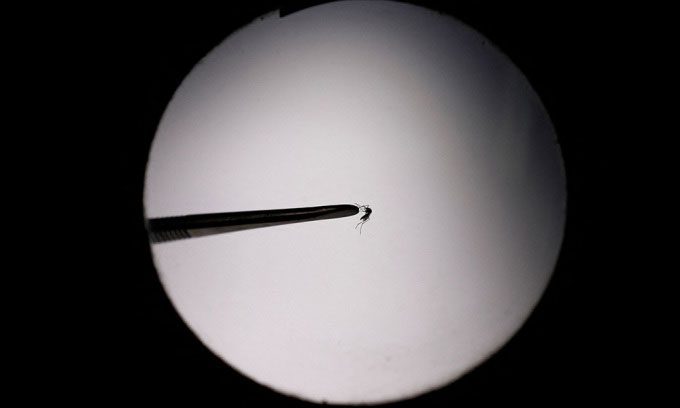Experts at the National Atomic Energy Commission of Argentina (CNEA) are using atomic radiation to sterilize mosquitoes by altering their DNA, in an effort to combat the dengue fever outbreak.

An Aedes aegypti mosquito observed under a magnifying glass at CNEA on April 12. (Photo: Reuters/Agustin Marcarian).
Argentina is currently facing one of the worst dengue fever outbreaks in recent years, as reported by Reuters on April 17. This year, the South American country has recorded over 41,000 cases of the mosquito-borne disease, significantly higher than previous major outbreaks in 2020 and 2016, according to government data.
“Due to increasing temperatures in Argentina and around the world, this type of mosquito is likely to spread further. Their populations continue to move further south,” said biologist Marianela Garcia Alba at CNEA.
In response, biologists at CNEA have been experimenting with atomic sterilization since 2016. They are currently sterilizing 10,000 male mosquitoes each week, with a goal of increasing to 500,000. Scientists plan to release the first batch of sterilized male mosquitoes outdoors in November.
“They are sterilized using ionizing energy, and these infertile males will be released into the fields. When they mate with wild females, their offspring will not survive. Therefore, by continuously releasing such males, we can reduce the population of disease-carrying mosquitoes,” Garcia Alba explained.
Dengue fever is transmitted through the bite of the Aedes aegypti mosquito. Symptoms include fever, eye pain, headaches, muscle and joint pain, nausea, vomiting, and fatigue. Similar techniques for sterilizing pest animals using radiation have been employed for decades, bolstering global efforts to control diseases such as Chikungunya, dengue fever, and Zika.


















































